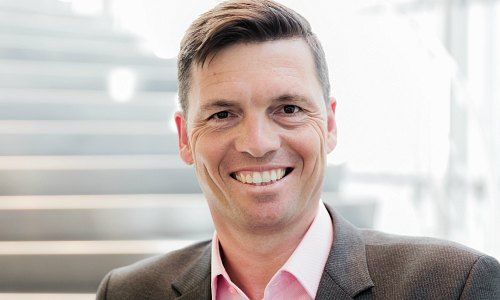What are the changes that UBS wants to achieve?
Let's take the example of the Millennium Development Goals of 2000: they were only directed at states. Only recently, via the Sustainable Development Goals, started the UN to make companies accountable. It drew attention to the investment gap of an annual $5 billion to $7 billion necessary to reach the 17 goals by 2030. Such investments will lead to an improved sustainability by prompting positive change.
Rating agency Moody's recently said that U.S. coal companies were no longer investment grade – in other words, high risk. What does UBS do in such a case?
UBS for years has had a limited risk appetite for the financing of coal mines. In corporate finance it is mainly an issue of risk management questions that have to be answered according to set criteria. This serves to decide if and under what conditions a relation with a customer is being set up or not.
«We follow a coordinated approach across the company»
In asset management, we developed instruments for managers of equity portfolios to analyze their portfolios in regard to the carbon footprint of their portfolios. In wealth management the question has to be discussed with the client, whether he still wants to be exposed to such risks.
In which way is UBS aiming its sustainability policy?
In sustainability aspects, we have a coordinated approach across the entire company. There are committees on various levels working intensively with the issue. It starts at board level with the Corporate Culture and Responsibility Committee under the direction of Chairman Axel Weber. Our CEO Sergio Ermotti also takes part in those meetings. I'm the secretary of this committee. That's where the issues are being discussed, and executive committee members are being invited to report on active changes in that area.
What are issues currently being discussed in the committee?
A recurring topic is climate change. There we get recommendations of the Financial Stability Board. They have been analyzed in detail and it was decided who at UBS is going to work with the issue and how we will implement the recommendations.
On an operative level at UBS, what is being done in relation to the strengthening of sustainability?
On the operative level we have the UBS Society and Operating Committee, which takes care of the strategic implementation of such topics across all the divisions. Furthermore, there's the Global Environmental & Social Risk Committee led by the chief risk officer, where we deal with issues of human rights and environmental risks.
«The development is also a consequence of customer interest»
On a further level there are several teams – also in the business divisions, which work with those issues. In the past years, UBS invested strongly to get the necessary personnel.
At UBS, did you have a clear top-down-process that was implemented strictly? Or was it also a consequence of developments in society?
It is and was a mixture of the two. UBS Chairman Axel Weber for sure played important part, because he takes sustainability very seriously. CEO Sergio Ermotti is also very involved, in particular in the implementation in the bank and in the creation of a corporate culture with a long-term approach. Sergio Ermotti is also chairman of the UBS Optimus Foundation. The importance of sustainable business today is clearly recognized with the bank.
How does UBS measure the success of its sustainability strategy?
We are being assessed through external ratings of sustainability, for instance by the DJ Sustainability Index, where we are the No. 1. A further indication is to be the market leader in sustainable investments for private and corporate clients. There, we also lead with good margin. The development is also a consequence of customer interest. Take the pension funds: in the Netherlands and in Scandinavia for a number of years you had more and more players deciding they wouldn't do business with asset managers without a sustainable profile.
«Measuring social impact isn't easy»
This has strengthened the development within UBS Asset Management to create and offer specific products that correspond with the pension funds criteria. These are products which measure the financial but also the social performance. In Wealth Management, philanthropy has had a long tradition. But with the reports from the CIO office wealthy UBS clients have become more and more aware that they are able to instigate change actively with sustainable investments and make money all along.
How do you measure a social performance?
To be honest, in the area of impact investing, measuring a social effect isn't that easy. But if you invest in education projects you can measure concretely how many additional students made a degree. If you invest in World Bank bonds, which we now are able to offer to private clients as well, you can say pretty precisely which positive effects the sponsored projects have. On the whole, for the definition of impact we need to find a standard. There's some work to be done still – and we are, as mentioned, actively participating in this work.
Is sustainability something for UBS to differentiate itself from its competitors?
I believe that UBS is on the way to create a measure of differentiation. The perspective of the client is decisive. But for us, it isn't that much a question of differentiation. As we explained in our WEF White Paper in January 2018, we will also be able to take an influence if we work together with partners.
Christian Leitz is UBS Head Corporate Responsability Management. At the same, he also is in charge of the history department at UBS. Leitz joined UBS in 2003 to work on the 150-Year-Anniversary. Before he started working in banking, he made career in the academic world. He taught Modern European History at University of Auckland in New Zealand for five years.
- << Back
- Page 2 of 2




































